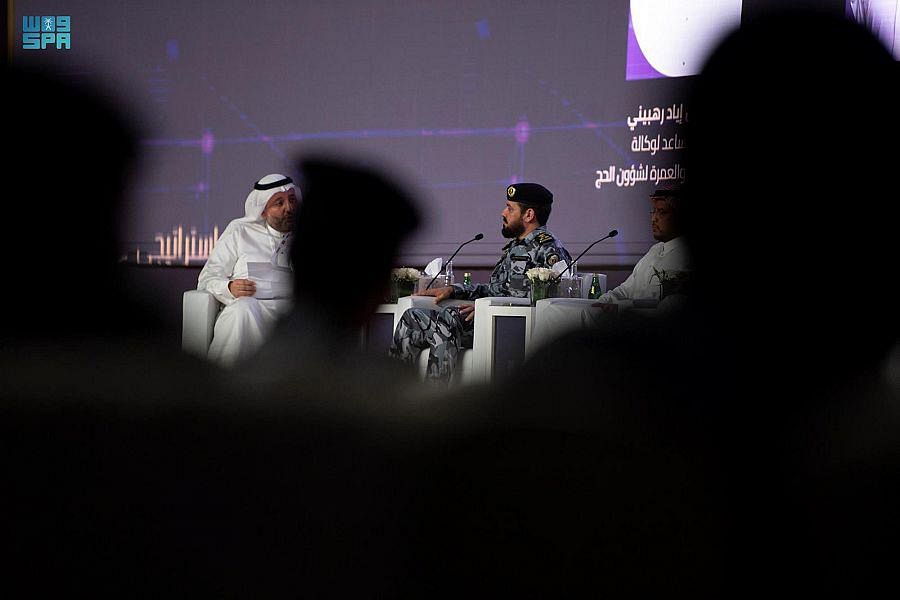
Millions of local internet users are making the most of the Ministry of Interior’s smart service portal every day. Its digital transformation program experience will be a global example to follow.
This was stressed by Assistant Minister of Interior for Technology Affairs Prince Dr. Bandar bin Abdullah Al-Mishari Al-Saud, the chief guest at a cybersecurity meeting organized by the Jeddah branch of the American Society for Industrial Security (ASIS International) at the Ritz-Carlton on Tuesday, in collaboration with the General Secretariat of the Higher Commission for Industrial Security.
The ministry “is part of the country’s work system of cybersecurity, which has recently become an independent government entity. It is responsible for planning and supervising cybersecurity. Therefore, we fully cooperate with it. Thus, the ministry is keen to support all national platforms, particularly the national cybersecurity authority,” the minister said in the meeting, in which specialists from the National Cyber Security Center and the Communications and Information Technology Commission participated.
In a 30-minute speech, the prince addressed an audience of more than 350, stressing that the Ministry of Interior has been digitized from the start.
“The National Information Center (NIC) was established 40 years ago as the first information center in the Middle East. Digitization in the Ministry of Interior started at that time. The founding of the NIC synchronized with the establishment of King Saud University’s College of Computer and Information Sciences, as the first college of its kind in the region, as far as I know,” he said. The college was one of the few institutions in the world at that time, he said. The ministry and King Saud University collaborated to establish the College of Computer and Information Sciences.
Prince Bandar pointed out that data have become “a commodity, an industry, wealth. All forms of data, in fact, have become an integrated industry and a national treasure on all levels.” Data and information, if used properly, can make a big leap in our life. If neglected, he said, they will be a burden on societies.
He noted that the portal of the Saudi Ministry of Interior is a pioneer in the region in smart services and solutions, pointing out that the ministry’s platforms and initiatives are used by millions of users every day. “It has made outstanding achievements at all levels, including passports, traffic and other services,” he said. The prince stressed in his lecture that the Interior Ministry is a leader in adopting technology in nearly all the services it provides.
“The ministry started issuing entry/exit visas electronically in 2009. It also introduced the fingerprint system and the smart national ID cards in the same year. A year later, it introduced the Absher platform,” he said.
“Absher will soon launch a new service called ‘Absher Government’ which will provide governmental entities with the services they need. We will also add more services and technologies to the Absher platform to meet people’s needs and ease their lives,” the assistant minister said. They were thinking of making Absher a giant platform like Google, he said.
The use of electronic services and smart solutions is the backbone for future government, he said. “Any economic, developmental and social success will be through depending mainly on these elements. We, in Saudi Arabia, have made great advances in this regard, in a way that complies with the country’s Vision 2030. Our achievements in this field harmonize with the rapid increase in deploying technology and knowledge.”
The leadership has a clear vision and ambitious goals that will put Saudi Arabia among the developed countries in the world.
Replying to an Arab News question about how we can successfully manage the unstoppable flow of applications that may damage our cultural identity or do harm to our social fabric, the assistant minister said clear legislation can help control information and preserve the right of information owners, and this what will soon happen after the national privacy system is issued.
The minister said the total population of Saudi Arabia exceeded 33.2 million. “More than 30.2 million use the internet and 25 million are active internet users, and 18 million of Saudis are active mobile users.”









